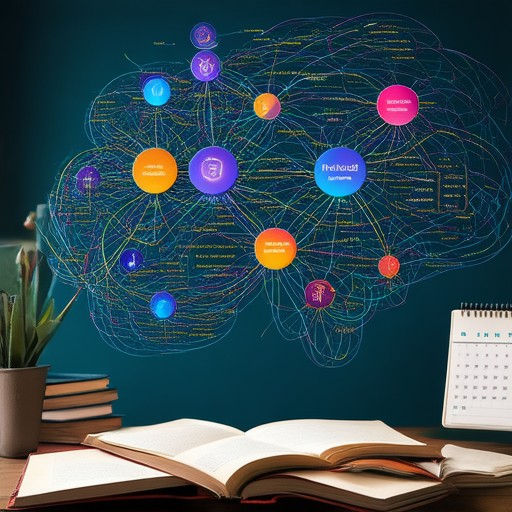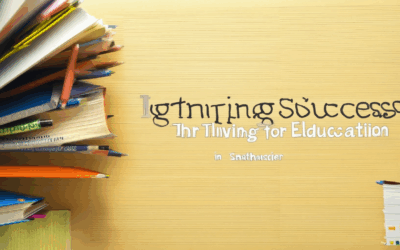Effective study habits for exams are the cornerstone of academic success. By refining your study techniques, you can maximize your efficiency, reduce anxiety, and achieve exceptional results. Whether you’re managing a packed schedule, tackling complex subjects, or preparing for high-pressure environments, the right strategies can make all the difference. Explore proven methods to enhance focus, organize your time wisely, and build confidence. Your journey to exam success starts now—let’s embark on it together!
What Are the 5 Good Study Habits?
Developing effective study habits can significantly enhance your learning process and academic performance. Here are five essential study habits to adopt:
- Set Clear Goals:** Define what you aim to achieve during your study sessions. Whether it’s mastering a subject or preparing for an exam, having defined goals keeps you focused and motivated.
- Create a Dedicated Study Space:** Choose a quiet, organized area free from distractions. A dedicated space helps you stay concentrated and reduces the likelihood of interruptions.
- Utilize Time Effectively:** Break your study sessions into manageable chunks. This approach improves retention and prevents burnout, allowing you to maintain consistent progress over time.
- Prioritize Quality Over Quantity:** Focus on understanding complex concepts rather than simply racking up pages. Deep learning occurs when you engage with material actively, such as through summarization or teaching others.
- Stay Organized with Tools:** Use planners or digital tools to track your schedule and tasks. This helps you manage your time efficiently and ensures nothing important is overlooked.
By incorporating these habits into your routine, you can optimize your study time and achieve better results. Remember, consistency and discipline are key to long-term academic success.
The 1/2/3 Method for Effective Studying
The 1/2/3 method is a simple yet powerful framework for organizing your study sessions. This approach helps you cover the material systematically while maximizing efficiency. Here’s how it works:
Understanding the 1/2/3 Method
- First Pass (1): Focus on understanding the core concepts and ideas. Read textbooks, notes, and summaries to grasp the fundamental principles.
- Second Pass (2): Review and reinforce the material. Test yourself using flashcards or quizzes to ensure retention.
- Third Pass (3): Apply the knowledge. Practice problems, complete assignments, and relate the material to real-world scenarios.
Preparing for Success
- Set Clear Goals: Define what you aim to learn and accomplish during each session. Break down larger topics into manageable chunks.
- Eliminate Distractions: Create a quiet, organized study environment free from interruptions. Use apps like Focus@Will to maintain concentration.
- Utilize Tools: Leverage tools like Anki for spaced repetition or Grammarly for proofreading and writing assistance.
Active Learning Strategies
- Teach What You Learn: Explain concepts aloud or teach others to reinforce your understanding. Use platforms like Ted-Ed for video lessons.
- Take High-Quality Notes: Summarize key points in your own words. Use color-coded highlighters to organize your notes effectively.
- Practice Regularly: Dedicate consistent time slots for studying. Use the Pomodoro Technique to maintain focus and productivity.
Mastering the Material
- Apply Spaced Repetition: Review your notes and materials at increasing intervals to enhance long-term retention. Use apps like Quizlet for flashcard decks.
- Seek Additional Resources: Explore books, online courses, and tutorials to deepen your knowledge. Platforms like Coursera offer valuable resources.
- Stay Organized: Keep track of your progress with planners or digital tools like Trello. Set milestones to celebrate achievements and stay motivated.
By following the 1/2/3 method, you can efficiently manage your studies while achieving better results. Combine this approach with consistent effort and a positive mindset to unlock your full potential. Visit Enroll Maven for more tips and resources to enhance your learning journey.
What is the Best Way to Study for Exams?
Effective exam preparation requires a strategic approach to maximize efficiency and minimize stress. Here’s a comprehensive guide to help you excel:
1. Create a Study Schedule
- Time Management: Allocate specific blocks of time each day dedicated to studying. Use methods like the Pomodoro Technique (25 minutes of study followed by a 5-minute break) to maintain focus.
- Consistency: Studying regularly leads to better retention compared to cramming. Aim for consistent study sessions rather than leaving everything to last minute.
2. Break Down Subjects
- Chunking: Divide your syllabus into smaller, manageable topics or chapters. Tackle one subject at a time to avoid feeling overwhelmed.
- Active Learning: Engage with the material through discussions, teaching others, or applying concepts to real-world scenarios to enhance understanding.
3. Utilize Study Tools
- Flashcards: Create and use flashcards for quick recall of important facts and terms. Apps like Anki offer interactive flashcard systems.
- Past Papers: Practice using sample exam papers to familiarize yourself with question formats and timing.
- Notes Review: Immediately review lecture notes after class to reinforce learning and apply spacing techniques for long-term retention.
4. Prioritize Sleep and Health
- Sleep Well: Prioritize sleep to support brain function and memory consolidation. Aim for 7-9 hours per night during exam preparation.
- Nutrition and Exercise: Maintain a balanced diet rich in vitamins and minerals. Regular exercise improves cognitive function and reduces stress.
5. Stay Organized
- Use Planners: Keep track of assignments, study schedules, and deadlines using planners or digital apps like Todoist or Trello.
- Stay Focused: Eliminate distractions by creating a dedicated study space free from interruptions.
6. Manage Stress
- Mindfulness and Meditation: Practice mindfulness or meditation to reduce anxiety and improve focus before exams.
- Positive Mindset: Believe in your ability to succeed and visualize yourself excelling in your exams.
7. Leverage Resources
- Enroll Maven Tips: Explore valuable resources on Enroll Maven for expert study strategies and time management guides.
- Competitor Insights: Check out similar platforms like Khan Academy and Coursera for additional learning techniques and inspiration.
By implementing these strategies, you can approach your exams with confidence and efficiency. Remember, consistency, organization, and a positive mindset are key to long-term success.
How to Focus 100% on Studying
Staying focused during study sessions can be challenging, especially with numerous distractions and competing priorities. However, by implementing strategic techniques and maintaining a disciplined mindset, you can significantly enhance your concentration and productivity. Below are proven methods to help you achieve optimal focus:
- Set Clear Goals:** Define specific objectives for each study session. Knowing what you aim to accomplish can boost motivation and guide your efforts.
- Eliminate Distractions:** Create a dedicated study environment free from interruptions. Use apps like Focus@Will to block distracting websites and maintain concentration.
- Prioritize Tasks:** Organize your study materials into manageable sections. Break larger tasks into smaller, actionable steps to avoid feeling overwhelmed.
- Take Regular Breaks:** Incorporate the Pomodoro Technique by studying for 25 minutes followed by a 5-minute break. This interval helps maintain focus and prevents mental fatigue.
- Practice Mindfulness:** Engage in brief mindfulness exercises before starting your study session. Techniques like deep breathing can reduce stress and improve concentration.
- Stay Hydrated and Well-Nourished:** Keep a water bottle nearby and prepare healthy snacks. Proper nutrition and hydration support cognitive function and energy levels.
- Reward Achievements:** Celebrate completing tasks with small rewards to reinforce positive behavior and maintain motivation.
- Ensure Adequate Sleep:** Prioritize sleep by aiming for 7-8 hours per night. Quality sleep enhances focus and memory retention, crucial for effective studying.
By integrating these strategies into your study routine, you can create a balanced and sustainable approach to focusing 100% on your academic goals. Remember, consistency and self-compassion are key to building effective study habits that last.
How Can I Study 10X Faster?
To study 10 times faster, adopt a strategic approach that combines time management, effective techniques, and consistent practice. Here’s a structured plan:
- Time Management Techniques :
- Pomodoro Technique : Work for 25 minutes followed by a 5-minute break. This maintains focus and prevents burnout.
- Eisenhower Matrix : Prioritize tasks by urgency and importance to allocate time effectively.
- Active Learning Strategies :
- Active Recall : Regularly test yourself on the material instead of passively reviewing. This enhances memory retention.
- Spaced Repetition : Review information at increasing intervals to leverage the power of spaced repetition systems (SRS).
- Efficiency Boosters :
- Interleaved Learning : Mix different topics in one session to enhance understanding and prevent forgetting.
- Mind Mapping : Create visual summaries to organize information and retain it more effectively.
- Engagement and Motivation :
- Teach Others : Explain concepts to others to reinforce your own understanding.
- Set Clear Goals : Break down objectives into manageable tasks to maintain direction and motivation.
- Environment and Habits :
- Minimize Distractions : Use tools like Forest or StayFocusd to maintain focus.
- Prioritize Sleep : Ensure adequate sleep for memory consolidation.
- Mindset and Adaptation :
- Stay Curious : Approach learning with enthusiasm and openness to new ideas.
- Be Flexible : Adjust strategies based on personal effectiveness and feedback.
By integrating these techniques, you can optimize your study routine, leading to more efficient and effective learning. Consistency and adaptation are key to achieving your goal of studying significantly faster.
How to Use 100% of Your Brain While Studying
Using 100% of your brain while studying may seem challenging, but with the right strategies, it’s achievable. Here are proven methods to maximize cognitive engagement:
1. Engage Multiple Cognitive Functions
Stimulate different parts of your brain by combining sensory input, motor skills, and cognitive processes. For example:
- Take notes by hand while listening to lectures or reading.
- Draw diagrams or mind maps to visualize complex concepts.
- Practice active listening by summarizing information aloud.
2. Practice Deep Breathing and Focus Techniques
Reduce stress and improve concentration with deep breathing exercises:
- Inhale deeply for 4 seconds, hold for 4 seconds, exhale for 6 seconds.
- Repeat this cycle during study sessions to maintain focus.
3. Incorporate Movement and Physical Health
Physical activity enhances blood flow to the brain, boosting cognitive function:
- Take regular breaks to stretch or walk around.
- Stay hydrated and eat brain-boosting foods like nuts and berries.
- Avoid excessive caffeine or sugar intake, which can impair focus.
4. Use Spaced Repetition and Dual Encoding
Reinforce memory by spacing out study sessions and associating information with multiple senses:
- Review notes at increasing intervals over time.
- Connect new information with visual, auditory, and kinesthetic experiences.
5. Set Clear Goals and Track Progress
Define specific objectives and track your achievements to maintain motivation:
- Break study material into manageable chunks aligned with your goals.
- Use apps or planners to log daily progress and adjust as needed.
6. Stay Curious and Explore New Concepts
Challenge your brain by exploring connections between subjects:
- Ask questions and seek answers to deepen understanding.
- Explore related topics to build a broader knowledge base.
7. Sleep Well and Manage Stress
Optimal brain function requires quality sleep and stress management:
- Aim for 7-9 hours of quality sleep each night.
- Practice relaxation techniques like meditation or yoga.
8. Experiment with Learning Styles
Find what works best for your brain by trying different approaches:
- Try teaching the material to someone else or explain it aloud.
- Use visualization techniques to reinforce memory.
9. Stay Consistently Motivated
Motivation is a key driver of brain engagement:
- Create a study environment that’s free from distractions.
- Set a consistent routine and stick to it.
- Reward yourself after completing study sessions.
10. Seek Community Support and Resources
Leverage the power of community and trusted resources:
- Join study groups or forums to share ideas and gain insights.
- Utilize platforms like Coursera or Udemy for guided learning.
- Refer to reputable guides and tools from trusted sources.
Conclusion
Maximizing your brain’s potential during study sessions requires a holistic approach that combines mental, emotional, and physical well-being. By implementing these strategies, you can unlock your brain’s full capacity to absorb and retain information effectively. Remember, consistency and curiosity are key to long-term success in learning.









0 Comments